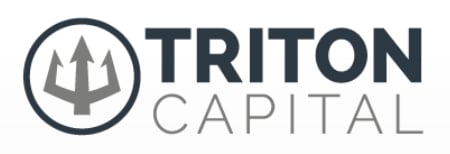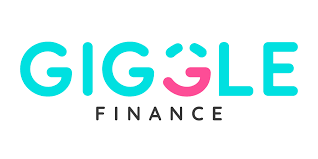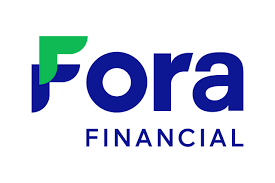Business Loans You Can Get Without a Personal Guarantee
Personal guarantees are typically required for small-business loans, but you may be able to forgo them in certain circumstances.
Many, or all, of the products featured on this page are from our advertising partners who compensate us when you take certain actions on our website or click to take an action on their website. However, this does not influence our evaluations. Our opinions are our own. Here is a list of our partners and here's how we make money.
Concerned about tariffs?
Many small-business owners are under increased economic stress and uncertainty following the latest tariff announcements. NerdWallet is here to help you find answers for whatever you're looking for. Here are some resources to help you get started:
- Need emergency funding? Consider a business line of credit.
- Looking for fast access to working capital? Discover the best working capital loans.
- Want tips on how to mitigate the impact of tariffs? Read our guide.
A personal guarantee on a business loan reduces a lender’s risk, and ensures that it won’t incur too much loss on the capital it’s lending out. Personal guarantees are a standard practice for most business loans; however, the requirement is ultimately up to the discretion of the lender.
As a borrower, signing a personal guarantee on a small-business loan can increase your likelihood of approval, or improve your interest rates and terms. Business loans you can get without a personal guarantee will depend on factors like your business finances, assets available for collateral, lender policy and business history.
Terms to know before you dive in:
- Cosigner: an individual you trust to take over loan payments if you can’t make them.
- Collateral: assets you’ll surrender to the lender if you fail to pay back your loan.
- Default: repeatedly failing to make payments on your loan without coming to an agreement with your lender.
- Secured business loan: financing backed by physical or non-physical assets (collateral).
- Unsecured business loan: financing that doesn’t require collateral.
What is a personal guarantee on a business loan?
A personal guarantee is a document signed as a part of a business loan agreement promising that an individual borrower will repay the loan in the event that the business can’t. When you sign a personal guarantee, you are essentially acting as a cosigner on your business’s loan, which means that your personal assets may be seized if your business defaults on the loan.
Personal guarantees are common to most business loans — even unsecured business loans often require a borrower, or any owner of over 20% of the business, to sign a personal guarantee.
Lenders that don’t require a personal guarantee
 Why trust NerdWallet
Why trust NerdWallet
250+ small-business products reviewed and rated by our team of experts.
80+ years of combined experience covering small business and personal finance.
50+ categories of the best business loan selections.
Objective and comprehensive business loans ratings rubric. (Learn more about our star ratings.)
NerdWallet's small-business loans content, including ratings, recommendations and reviews, is overseen by a team of writers and editors who specialize in business lending. Their work has appeared in The Associated Press, The Washington Post, MarketWatch, Nasdaq, Entrepreneur, ABC News, MSN and other national and local media outlets. Each writer and editor follows NerdWallet's strict guidelines for editorial integrity to ensure accuracy and fairness in our coverage.
How much do you need?
We'll start with a brief questionnaire to better understand the unique
needs of your business.
Once we uncover your personalized matches, our team will consult you
on the process moving forward.
Find the right loan for your business
Tell us how much you need and see your options in minutes.Business loans you can get without a personal guarantee
Business loans that you can get without a personal guarantee normally require some other form of collateral to secure the loan; however, this requirement will vary based on the type of loan and the lender.
Term loans
Depending on the lender and your creditworthiness, term loans are one of the most affordable types of business loans, especially for large purchases. They provide a lump sum of capital upfront that is repaid over a set period of time, with interest.
While business term loans often require a personal guarantee, you may be able to negotiate, especially if you have strong personal or business collateral to offset the lender’s risk.
Lines of credit
Business lines of credit are revolving sources of capital that allow you to spend up to a certain limit, continue to draw on the line once you’ve repaid the amount borrowed and only pay interest on what you’ve drawn.
Similar to a term loan, a business line of credit without a personal guarantee will likely require another way of securing the line. For example, the Wells Fargo Prime Line of Credit does not require a personal guarantee, but is secured instead by a first position lien on business assets.
Equipment loans
Because equipment financing loans are inherently secured by the equipment being financed, you may have an easier time finding equipment lenders that don’t require personal guarantees.
Triton Capital, for example, is a California-based lender that provides term loans to finance equipment. It does not require a personal guarantee because the equipment being financed serves as collateral.
Merchant cash advances
Merchant cash advances (MCAs), or business payday loans, are not technically structured as loans, and may therefore be more likely than other types of business financing options to waive a personal guarantee requirement. Credibly, for example, is an alternative business lender that does not require a personal guarantee or collateral on its MCAs, and only files a Uniform Commercial Code (UCC) lien on deals over $200,000.
MCAs are not regulated the same way traditional business loans are, and are one of the most expensive and riskiest types of business financing. They are best used for short-term needs, and as a last resort.
Invoice financing or invoice factoring
Invoice financing is a type of small-business loan that uses your unpaid customer invoices as collateral. With invoice factoring, on the other hand, you actually sell your unpaid customer invoices to a third-party company, which then collects on the invoices.
Both types of lenders are usually more focused on the creditworthiness of your customers, and may therefore not require a personal guarantee; however, this is ultimately dependent on the lender.
» MORE: Best invoice factoring companies
How Fundera by NerdWallet Works
Getting a business loan can be challenging. Let our sales experts help you through the process.

Fill out a simple application Our 3-min. questionnaire is free & won't impact credit.

See your loan options Compare rates and repayment terms to choose the best product for your needs.

Get your loan If approved, sign closing documents and receive funds.
Why do lenders require a personal guarantee?
A personal guarantee protects a lender and decreases their risk when lending to your business by allowing them to seize your personal assets in the event of a loan default, helping them recover some of their losses.
When you are willing to sign a personal guarantee, it also shows a lender that you are personally invested in the success of your business, and therefore, have an extra incentive to make your loan payments.
What are the consequences of signing a personal guarantee?
Simply signing a personal guarantee shouldn’t have any immediate consequences to your finances. The document doesn’t cause a business loan to appear on your personal credit report, or allow a lender to seize any personal assets without reason.
If your business is unable to pay the loan, however, a personal guarantee means that you are personally liable. This may mean covering the loan payments from your personal income, or handing over personal assets that can be used to pay off the loan amount. Lenders may report collection efforts to personal credit bureaus during this process, which can negatively impact your personal credit.
How can you avoid signing a personal guarantee?
Finding a business loan that doesn’t require a personal guarantee isn’t impossible, but it may require some negotiation. Since personal guarantees are used to protect lenders, you’ll need to find other ways to offset that risk.
- Separate your business legal structure. Establishing your business as a separate legal entity is likely the first step in avoiding a personal guarantee. As opposed to a sole proprietorship, structuring your business as a corporation or LLC will allow you to build separate business credit, and demonstrate that your business’s cash flow, revenue and assets — and therefore, its ability to repay the loan — are independent of any personal contribution.
- Establish business credit. Having strong, established business credit that demonstrates a positive history of repayment may offset some of the lender’s risk and show them that your business is likely to repay the loan. The catch is that to build your business credit, you’ll need a loan or a credit card that likely requires a personal guarantee. It’s important to make sure your business has a D-U-N-S number with Duns & Bradstreet, the most common business credit service, to make sure your business is building its credit profile.
- Offer other high-value collateral. High-value business assets like real estate or large equipment is a great way to offset lender risk, especially if it’s worth more than your personal assets. Certain types of asset-based lending may automatically waive the personal guarantee requirement, but if not, it may be worth trying to negotiate with your lender if you have high-value collateral.
Other funding options that don’t require personal guarantees
Business credit cards. Business credit cards function similarly to personal credit cards, wherein you can spend up to a certain limit continually as you pay your balance, and are only charged interest on any unpaid balance you carry over from month to month. Many business credit cards do require personal guarantees but not all.
Like other financing options, business credit cards that don’t require personal guarantees have other requirements to offset the risk. Ramp’s corporate card, for example, requires a minimum of $75,000 in a business bank account, while the Sam’s Club Business Mastercard is available without a personal guarantee for businesses with $5 million in annual sales or revenue.
Crowdfunding. Crowdfunding is a way to raise capital through online platforms, where individuals can invest small amounts in your company in exchange for rewards or sometimes equity in your business. Crowdfunding can be a great way to avoid business debt, pledging assets as collateral and having to sign a personal guarantee.
Small-business grants. Small-business grants are another way to finance your business without signing a personal guarantee. Grants are available from local and federal government sources, nonprofit organizations or large corporations. Though they can take time and effort to research and apply for, they may pay off in the long run if you’re able to avoid going into business debt.
Frequently Asked Questions
Do SBA loans require a personal guarantee?
Yes. Standard SBA loans require a personal guarantee for any owner of 20% or higher. Guarantee requirements for SBA disaster loans may vary based on the program and the loan amount.
Can I get a business loan without a personal guarantee?
Yes, it is possible to get a business loan without signing a personal guarantee depending on the type of financing and the lender’s policy. You will likely need other risk mitigants, such as strong personal credit or business collateral.
Can you get a business loan with bad personal credit?
It’s possible to get a business loan with bad personal credit, but you may need to offer collateral or pay a higher interest rate.
Article sources
NerdWallet writers are subject matter authorities who use primary,
trustworthy sources to inform their work, including peer-reviewed
studies, government websites, academic research and interviews with
industry experts. All content is fact-checked for accuracy, timeliness
and relevance. You can learn more about NerdWallet's high
standards for journalism by reading our
editorial guidelines.
On this page
- What is a personal guarantee on a business loan?
- Lenders that don’t require a personal guarantee
- Business loans you can get without a personal guarantee
- Why do lenders require a personal guarantee?
- What are the consequences of signing a personal guarantee?
- How can you avoid signing a personal guarantee?
- Other funding options that don’t require personal guarantees
Related articles















